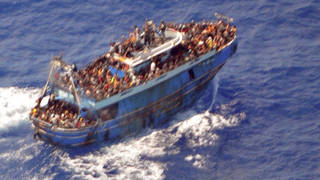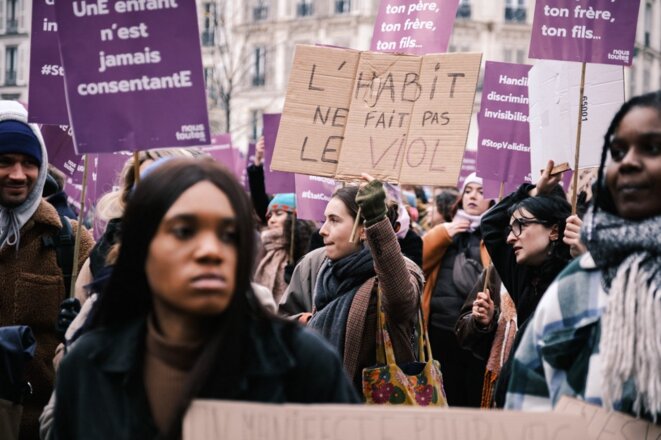
As many as 700 migrants are feared to have died after an overloaded fishing vessel capsized last week off the coast of Greece. As search and rescue efforts continue with dwindling expectations, the Greek Coast Guard is facing backlash over its failure to help rescue passengers before the boat sank. Most of the migrants were women and children; many were from Pakistan, Afghanistan, Egypt, Syria and Palestine. They are presumed victims of what may be one the deadliest migrant shipwrecks ever recorded, yet the story has received far less public attention than the search for five passengers aboard a submersible to view the wreck of the Titanic. All five of those passengers were confirmed by the U.S. Coast Guard to have likely died Sunday, days before wall-to-wall media coverage began to speculate about their plight.
We discuss this disparity and the European refugee crisis at large with two guests: Giorgos Kosmopoulos, a senior migration campaigner for Amnesty International, and Laurence Bondard, spokesperson and operations communications manager for SOS Méditerranée, a nongovernmental rescue organization that operates in the central Mediterranean. Bondard has sailed on seven rescue missions with the NGO, part of a growing necessity in the region, where European countries have withheld the resources available for sea rescue. In the last decade, more than 30,000 refugees are estimated to have drowned in the Mediterranean.

 1 year ago
22
1 year ago
22


